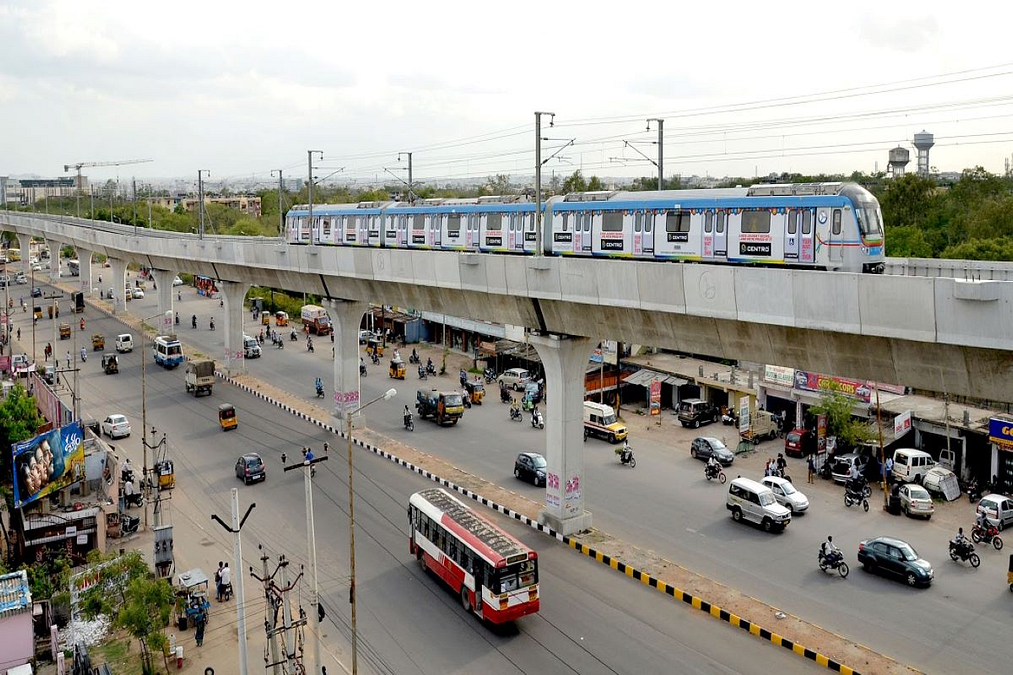Medchal and Shamirpet Metro Corridor Surveys Advance with Traffic, Soil, and Environmental Studies
The proposed Metro rail corridors connecting JBS to Medchal and Shamirpet are making significant strides as survey works and investigations progress swiftly, according to Hyderabad Airport Metro Limited (HAML) Managing Director NVS Reddy. These surveys are crucial for the preparation of the Detailed Project Reports (DPRs), which will guide the development of these vital corridors in Hyderabad.
The surveys are comprehensive, focusing on several key areas including traffic patterns, soil conditions, and the environmental impact of the project. A vital aspect of the work is the traffic survey, which aims to assess both current travel patterns and future projections. Metro officials are studying junction movements, pedestrian footfall, and gauging the percentage of commuters likely to switch to metro services once the corridors are operational. Understanding these aspects is essential for designing a metro system that meets the needs of Hyderabad’s growing population.
Additionally, the soil testing phase is nearing completion. This involves drilling boreholes every half-kilometre to depths ranging from 50 to 100 feet. The tests, which cover 25 locations on the JBS-Medchal route and 19 on the JBS-Shamirpet route, are being conducted to assess soil conditions that will inform construction strategies. Of the planned locations, 14 tests have been completed along the JBS-Medchal route and 11 on the JBS-Shamirpet route, with more scheduled as part of the ongoing investigations. An equally important aspect of the project is the Environmental Impact Assessment (EIA), which aims to evaluate the potential ecological effects of the metro corridors. The EIA process examines factors such as air quality, noise pollution, water resources, and the project’s impact on local biodiversity and communities. Metro officials have emphasised that mitigating any environmental impact is a priority for the project team, as they work to ensure that the metro corridors align with Hyderabad’s sustainable growth.
The JBS-Medchal corridor will span an impressive 24 km, while the JBS-Shamirpet route will cover 21 km. These corridors are set to significantly improve connectivity between key areas in Hyderabad, alleviating traffic congestion and providing a fast, efficient alternative for commuters. NVS Reddy, while outlining the progress, reassured that the project is moving forward with all necessary precautions in place to ensure passenger comfort and safety once operational. The studies and surveys are being conducted under the guidance of Chief Minister Revanth Reddy, who has directed that all investigations be completed by the end of March 2025. Once completed, the DPRs will be submitted to the state government for approval before being forwarded to the central government for final clearance. This rigorous process ensures that the project meets all necessary standards and that the metro system will be both functional and sustainable for years to come.
The success of these surveys and investigations will be pivotal in shaping the future of Hyderabad’s metro network. With its expanding population and growing urban demands, the new Medchal and Shamirpet metro corridors are expected to play a crucial role in easing traffic congestion, improving public transport, and contributing to the city’s overall development. As the project moves forward, the residents of Hyderabad eagerly await the tangible benefits of these metro lines, which promise to offer faster, more sustainable, and comfortable travel options. The ongoing survey works for the Medchal and Shamirpet Metro corridors are progressing at a rapid pace, with a strong focus on ensuring the project’s success from a traffic, environmental, and infrastructure standpoint. This will not only enhance the city’s connectivity but also position Hyderabad as a leader in modern urban transport systems.


